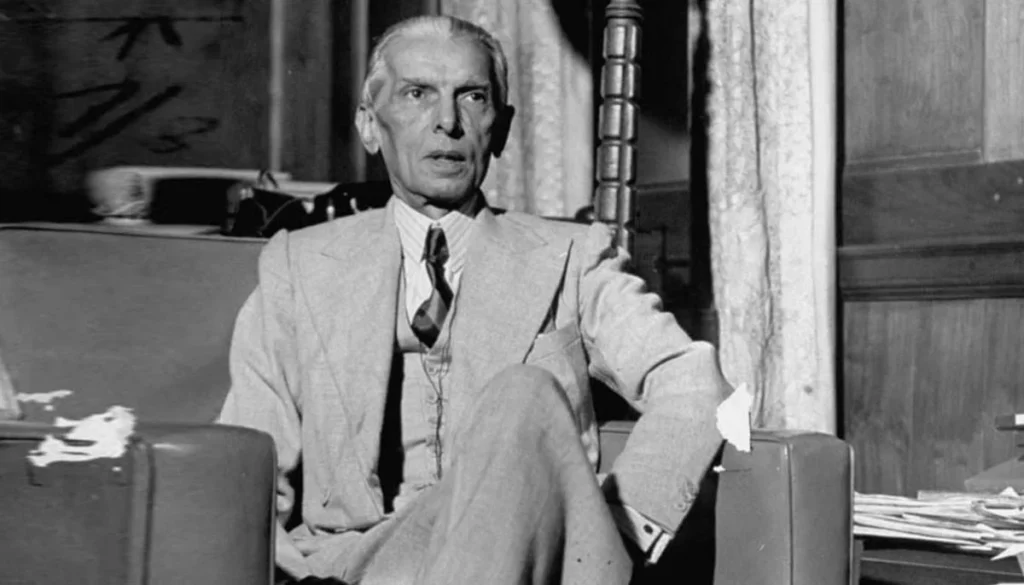تاریخ کے اوراق سے یاد رکھیں گے
اس بندۂ مومن کو کوئ لاکھ بھلا دے
On September 11, 1948, the newly born Pakistan plunged into grief. Just a year earlier, the nation had roared with “Pakistan Zindabad,” and now it mourned its founder, Quaid-e-Azam Muhammad Ali Jinnah. His death was more than the loss of a leader; it was the silencing of a voice that had carried millions of Muslims from despair to freedom. Jinnah’s life remains one of the most remarkable political journeys of the 20th century, a man who, through sheer will, created Pakistan against impossible odds.
Jinnah’s Struggle and the Dream of Pakistan
Born in Karachi on December 25, 1876, Jinnah rose from modest beginnings to become a brilliant lawyer, trained at Lincoln’s Inn in London. He was known for his integrity and sharp intellect. Once celebrated as the “Ambassador of Hindu-Muslim Unity” after the 1916 Lucknow Pact, Jinnah later realized that Congress’s Hindu-majoritarian tilt would crush Muslim identity. With clarity and courage, he declared:
“It is a dream that the Hindus and Muslims can ever evolve a common nationality,” he said. “Hindus and Muslims belong to two different religious philosophies, social customs and literary traditions. They neither intermarry nor eat together, and indeed they belong to two different civilisations which are based mainly on conflicting ideas and conceptions“
From that conviction, Jinnah transformed the All-India Muslim League into a mass movement. His finest hour came with the Lahore Resolution of March 23, 1940, demanding a homeland for Muslims in the subcontinent. “We are a nation with our own distinctive culture and civilization, language and literature, art and architecture…by all canons of international law we are a nation,” he proclaimed. His words electrified Muslims across provinces, uniting them in the dream of Pakistan.
Uniting the Muslim Nation under One Banner
Jinnah’s genius lay in uniting a deeply divided Muslim community, stretching from Bengal to Punjab, under a single banner. Through the Muslim League, he transformed a scattered minority into a disciplined nation. His vision electrified the masses, and the 1946 elections proved it: over 86% of Muslim seats went to the League, a resounding mandate that Muslims stood as one behind Quaid-e-Azam. It was this unity, forged by his conviction and strategy, that made Pakistan inevitable.
The creation of Pakistan in August 1947 was nothing short of a historic achievement. Partition brought tragedy: nearly 14–16 million people were displaced, and about one million lost their lives. Yet Jinnah’s leadership ensured Muslims had a homeland to call their own. Pakistan, however, began with crippling disadvantages: only 17.5% of India’s financial assets, much of it delayed by India, and fewer than 500 officers out of 4,000 in the Indian Civil Service. Refugee camps overflowed, institutions were skeletal, and resources were scarce.
In these darkest days, Jinnah’s strength was Pakistan’s greatest resource. “Failure is a word unknown to me,” he reminded his people. Despite suffering from tuberculosis, a secret he concealed to avoid weakening the struggle, Jinnah threw himself into nation-building. He presided over cabinet meetings, guided policy, and managed the refugee crisis, literally “working himself to death.” His August 11, 1947, address to the Constituent Assembly still resonates: “You are free; you are free to go to your temples, you are free to go to your mosques…You may belong to any religion or caste or creed, that has nothing to do with the business of the state.”
His last public appearance came on July 1, 1948, at the inauguration of the State Bank of Pakistan, symbolizing his vision for a strong economic foundation. But by late July, his frailty could no longer be concealed. On September 11, 1948, after a grueling journey from Ziarat to Karachi, his ambulance broke down en route to Government House. As doctors tried to reassure him, “Sir, we have given you an injection … you are going to live”, Jinnah shook his head gently and whispered his final words: “No, I am not.”
Minutes later, Pakistan’s founding father breathed his last, leaving a grieving nation to carry forward his unfinished dream. His vision was of a just and tolerant Pakistan, where Muslims could live with dignity and minorities without fear.
Legacy of a Statesman and the Nation He Built
Sadly, Jinnah’s life ended just thirteen months after independence. On September 11, 1948, he passed away in Karachi. Pakistan, orphaned at birth, had lost its greatest guide. Yet his vision endured. He had given nearly 100 million Muslims a state where they could live free of Hindu dominance. Today, Pakistan is home to over 240 million people and stands as the only Muslim nuclear power, an enduring monument to Jinnah’s resolve. Jinnah’s legacy is not one of compromise but of triumph. He was not just a politician; he was a statesman who changed history with conviction and courage.
His motto, “Unity, Faith, Discipline,” remains deeply ingrained in Pakistan’s national identity. Seventy-seven years after his death, Pakistan still struggles with challenges he foresaw: unity, governance, and minority rights. Yet his guiding principle rings true: “With faith, discipline, and selfless devotion to duty, there is nothing worthwhile that you cannot achieve.” On his death anniversary, we remember Quaid-e-Azam not only as the founder of Pakistan but as the architect of Muslim freedom. Against overwhelming odds, he proved that one man’s vision can shape the destiny of millions. His life was his message: courage, clarity, and an unshakable belief in Pakistan.


